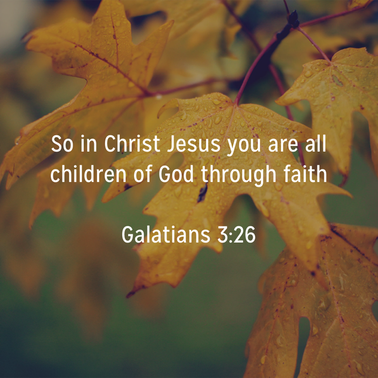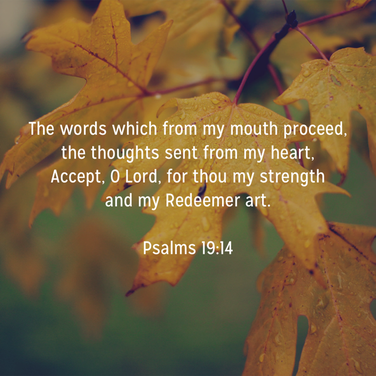|
Good morning!
We're so glad you decided to join us today!
When we meet in person, we share our joys and concerns with each other. If you have prayer requests to share, you can add them to the comments on this post. When you are ready, use this prayer to get started.
God of grace and mercy, we turn to you again as people who want to be closer to you and live as your children. Help us to remember that righteousness is not simply a matter of attending worship or Sunday school or going through any particular religious ritual. It is a matter of how we live and work and give in the world around us, and especially how we care for the poor and the oppressed in our community. Help us to live as children of light.
In Jesus’s name we pray. Amen.
This week's lesson is on Isaiah 58:6-10.
Introduction
The practice of fasting is confusing for many Christians, partly because we don’t hear much about it these days and partly because Christians can fast for different reasons at different times. Some may even consider fasting to be a practice of a bygone era when it comes to spirituality. According to the Presbyterian Church (USA), fasting is for repentance and mourning for our brokenness and sin, for seeking the will of God, for preparation for baptism of catechumens or new believers, and for preparing to receive God’s Word made flesh in the paschal mystery of Easter. We can find examples of all of these purposes throughout the Bible, but the thing that unites them all is a recognition that from time to time we need to focus intently on our sinfulness, our need for God, and our need to hear God’s word and to act in response to that word. Fasting is a good practice for many times in the Christian life, but Lent is a season that combines all of biblical reasons for fasting. Lent begins on Ash Wednesday, which is February 22 this year. During Lent, we try to get away from the distractions of life, and instead we focus on the basics, on our own mortality, and we prepare to hear and accept God’s word, particularly God’s Word made flesh, Jesus Christ. It is a deeply personal and introspective time, but it is also a time that allows us to look around us and see the needs of those who struggle to fulfill the basic needs that we may take for granted.
Lesson context
If you look at examples of fasting throughout the Bible, you will see it happens at times when people want to express deep sorrow, when people are expressing repentance, and when they have a deep desire to receive God’s word. From Moses’ 40-day fast before receiving the Law on Mount Sinai to Jesus’s 40-day fast in the wilderness to prepare for his ministry, fasting is a time of self-denial and preparation. Fasting is something that communities and entire nations can do to show their need for God’s intervention. But for those who approach fasting with the wrong motive and attitude, there is a danger that it can be done only for show. In Matthew 6, Jesus warns people not to fast in this way, not to make your fast obvious to those around you just to gain attention. That kind of fasting is insincere and goes against the true purpose of the practice. Isaiah must have seen something similar happening in his day. If you read the verses that come just before our passage for this morning, you will see that the people were fasting but they were not experiencing God’s presence or hearing God’s word. They wanted to know why. Isaiah’s answer is that they were going through the ritual of fasting, but it was not affecting their treatment of the poor and needy. They were fasting, but they were allowing injustice to continue and the poor to go hungry and naked. A fast that does not produce change within us that leads to change around us is not the kind of fast God intends.
God’s Chosen Fast (verses 6 and 7)
Our Sunday school lesson suggests that the people who were fasting during Isaiah’s time were not actively pursuing righteousness and real change but were merely taking a break from the evil habits they otherwise enjoyed. After all, the lesson points out, unscrupulous and unrighteous acts were (and still are) one way to become and remain wealthy or powerful. When Isaiah suggests the people fast by loosing other people’s chains and breaking their yoke, perhaps he was inviting them to see how they were benefitting from the injustice and pain that others in the community were experiencing. Perhaps the people of Isaiah’s time were not even fasting from their usual unjust behavior. Maybe they were simply going through the ritual of personal prayer and fasting while at the same time doing those things that contribute to the injustice and poverty around them. There is a real danger, even today, in separating our personal piety and service to the church from our way of living and doing business in our daily lives. Although we normally associate fasting with giving things up, it can also be a way of focusing on doing positive things. When I was growing up, people would often talk about taking the money saved from the meals we did not eat and donating that money to a good cause. During a fast, we may also use our time to do something positive for others in the community. Isaiah describes all of these practices in terms of lifting the burdens of others and setting slaves free. In fact, part of Isaiah’s call to fasting is “to share your food with the hungry and to provide the poor wanderer with shelter — when you see the naked, to clothe them….” This is the kind of fast God requires of us, a fast that not only sets aside our own daily needs but that gives us the opportunity to lift the burdens of others. During this time, we need to see that everyone in our community is, in a sense, our family and therefore they are people that we should not turn away when they are in need. Not all of the problems that people endure in society are because of systemic oppression. Sometimes, for example, people become homeless because they have untreated mental illness, addictions and simply because they experienced catastrophic financial losses. Many are elderly and without a real family support system. Regardless of how they have come to this situation or why they are unable to emerge from it, as Christians we are obliged to see them and to try to lift their burden.
A Bright Future (verses 8-10)
Isaiah’s prophecy is not just to pronounce gloom and to point out sin. It is also to assure the people that, if they commit to a fast like the one the Lord intends, they will experience God’s presence and they will become the people God wants them to be. Isaiah casts this change as moving from darkness to light. Not only will God’s light break forth on them, but they also will be people of light. Their light will shine into the world. It reminds us of the prologue to the gospel of John, where Jesus’s arrival is seen as light coming into the world. And even though not everyone accepted that light, and some tried to snuff it out, those who accept it, become children of God. In Ephesians, Paul calls such people “children of light.” Not only are Christians people who have seen the light. They are people who endeavor to live by that light and to share that light with others. If the people of Isaiah’s time would change their way of fasting and truly seek change within them and around them, they would receive healing as a people, both spiritual and physical. Isaiah assured them that they would enjoy God’s protection and God would answer their cries for help quickly. Sometimes when we feel God is not present with us or that God is not hearing or answering our prayers, it has more to do with our mental state than with God. At other times, even though God is always present with us, that sense of distance can be a call for us to examine ourselves and to bring our lives into God’s light so that we can receive forgiveness and righteousness. Again, fasting can allow us to remove the distractions and to focus on our relationship to God and how we are living as light in the world. In the case of the people of Isaiah’s time, it went back to the oppressive treatment of the poor. Isaiah calls them to stop pointing fingers and talking maliciously. Perhaps this refers to blaming particular people — or especially to speaking ill of and blaming the poor and oppressed themselves — for their situation. Perhaps Isaiah is telling everyone to take a look at themselves, to admit their own guilt and to change their ways. Isaiah concludes this portion of his prophecy by reminding his hearers that, by spending themselves in caring for the hungry and oppressed, God will indeed come to them, and they will shine like the sun at noontime. However, their fasts must be done with the right attitude, with real openness to change, and not simply for ritual or for show.
Conclusion
Isaiah pushed Israel to understand that what God deems important is not temporary willingness to fast from food but a spiritual health that leads to righteous behavior. So we might ask ourselves two questions: Do I go through ritualistic motions on a regular basis instead of allowing my heart to really be turned toward God during those practices? What “fast” might I need to undertake to align myself with the type of fasting God desires? A just and caring community will consider the “hungry” in all aspects Isaiah has already defined: food, clothing, and housing (Isaiah 58:7). How can we feel comfortable in our abundance if we know there is suffering in our neighborhoods? (1 John 3:17) It may be impossible for any one individual to meet every community need, but this does not excuse us from keeping our eyes open to the plight of others or striving to meet the needs we see. Experience has taught me that I am most successful with fasting if I practice it in community, with at least one partner. Then the limits of the fast are mutually agreed on and there is an accountability that helps keep me focused and faithful to the practice. Maybe you should seek a “fasting partner” who will share the experience and grow with you. That way you can grow in grace and truth together. (See John 1:14, 17).
Prayer
Lord God, give us hearts that seek a lifelong “fast” from the pleasures of sin and an ongoing “feast” of obedience to you. May we not be guilty of making a show out of our religious actions while having hearts of stone. Give us a character that cares about the needy, abstains from pointing fingers at others, loves and practices truth, and reflects the light of your Word. We pray in Jesus’ name. Amen.
Questions for discussion:
Benediction
This week's benediction is from the Revised Standard Version.
Next week's lesson is on Joel 2:21-27.
0 Comments
Leave a Reply. |
AuthorWe are a small, rural Presbyterian church in southwestern Pennsylvania. Archives
July 2024
Categories
All
|



 RSS Feed
RSS Feed